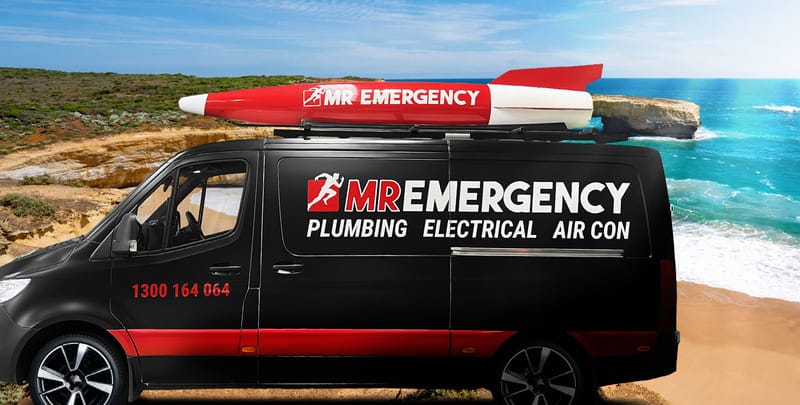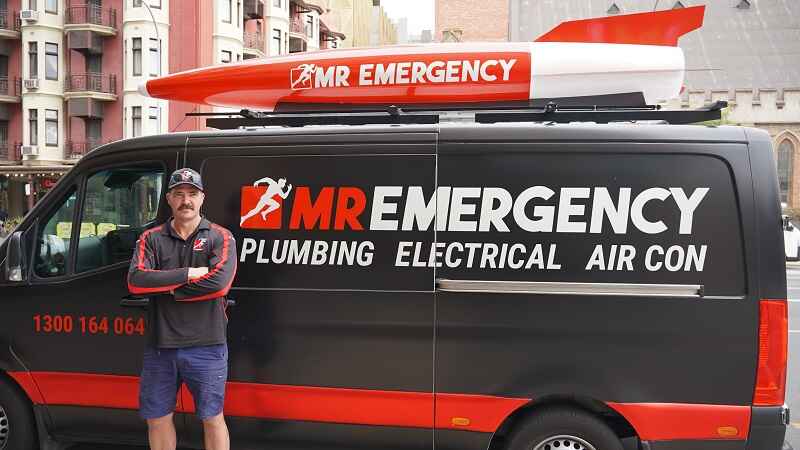
Gas Safety in the Home is Important
A major gas leak in your home is a serious and potentially life-threatening situation. Natural gas is highly flammable, and even a small leak from a gas appliance can lead to dangerous consequences if you don’t get on top of it quickly. Knowing who to call for a gas leak in the house and recognising the signs of a leak can make all the difference in ensuring the safety of you and your loved ones.
This article will guide you through the essential steps to take and the professionals to contact if you suspect a gas leak in your home. It’s all about achieving a prompt and safe resolution to the problem.
Immediate Steps to Take
When you smell gas inside and suspect a leak in your home, you need to take quick action to prevent a dangerous situation from getting worse. Follow these steps immediately:
- Evacuate the house: Your priority is to turn off any pilot lights and get out of the house ASAP. Open all doors and windows to let air in through the house. Do not use any electrical appliances, light matches, flick any light switches, or open flames, as they could ignite and cause a gas fire. Make sure any family members and pets are safely outside too.
- Turn off the main gas supply: If it is safe to do so, locate your gas meter box and turn off the gas supply. You can do this by rotating the valve on the meter to the off position.
- Do not re-enter the house: Once outside, do not re-enter the house until emergency services or a licensed gas fitter declares it safe. Staying outside minimises the risk of exposure to the gas and keeps you out of harm’s way.
Now that you’re safely away from the affected area, it’s time to get on the phone. But who do you call first; a gas fitter? Your local gas distributor? The fire department? Let’s find out.
Who to Call First
When you’re dealing with a possible natural or LP gas leak, first call emergency services. The operators manning the 000 lines are trained to handle gas leak situations. They can also:
- provide immediate advice on what to do while you wait for help
- dispatch emergency responders like the fire department
- guide you through additional safety steps if needed
Stay on the phone with the emergency operator until they have all the necessary information. They may also ask you to provide specific details about the situation to better assess the risk and respond appropriately.

Contacting a Licensed Gas Fitter
After calling 000, your next step should be to contact the local gas distributor in your area (for example, Australian Gas Networks). They will arrange for a licensed gas fitter to provide professional, qualified assistance with your leak.
Only a licensed and registered gas fitter can legally handle gas leaks in Australia. They have the necessary training and tools to identify the source of the leak, take the best course of action to fix it, and make sure your home stays safe.
When searching for a gas fitter, check that they are licensed and experienced. You can verify their credentials through relevant state or territory licensing bodies. In urgent situations, many gas fitters offer emergency services, allowing them to respond quickly and effectively to gas leaks in your home.
What to Expect When Help Arrives
When emergency responders or a licensed gas fitter arrives, they will take immediate steps to restore gas safety to your home.
Firstly, they will carry out a thorough assessment using specialist equipment to detect the presence and concentration of gas. They will identify the source of the leak and take measures to prevent further gas from escaping. These might include shutting off the natural gas supply and gas appliances if no one has done that already.
With the situation under control, the gas fitter will then take the necessary steps to fix the leak. This may involve replacing damaged pipes, pilot lights or faulty connections. Once they’ve wrapped up the repairs, they will conduct follow-up tests to tie up any loose ends and make sure your home is safe for re-entry.
Preventing Future Gas Leaks
Like many areas of our lives, from our health to our happiness, the “prevention is always better than cure” principle certainly applies to gas leaks. If you want to keep your home as safe as possible, follow these helpful tips:
- Regular maintenance: Regular maintenance of your gas appliances and systems is essential. Schedule annual inspections with a gas fitter to ensure everything is in proper working order. These check-ups can help identify potential issues before they become serious problems.
- Signs of potential issues: Be vigilant for signs of gas problems. If you smell gas, hear hissing sounds near gas lines, or have an unusually high gas bill, it can indicate a leak or other issues that require immediate attention.
- Install carbon monoxide detectors: Consider installing carbon monoxide detectors in your home. These devices can alert you to dangerous gas levels, providing an added layer of protection and early warning if something goes wrong with your gas system.
While you’re taking the necessary steps to prevent future gas leaks, it’s certainly worth making sure your house is ready in case a fire-related emergency occurs as well. Install smoke alarms throughout your house, keep a small fire extinguisher in an easily accessible location and test them regularly.
Keep Your Home and Family Safe
Dealing with a gas leak is a serious matter that requires prompt and careful action. By knowing the immediate steps to take, such as evacuating the house, avoiding using electrical equipment, and calling 000, you can prevent gas fires and the potential harm that comes from them. Contacting a licensed gas fitter is your best approach to fixing the situation safely and professionally.
Regular maintenance and vigilance can help prevent future leaks and keep your home safe and secure. Always act quickly and responsibly if you suspect a gas leak, and ensure your home remains a safe place for everyone.
Please note: This information is provided for advice purposes only. Regulations differ from state to state, so please consult your local authorities or an industry professional before proceeding with any work. See our Terms & Conditions here.


